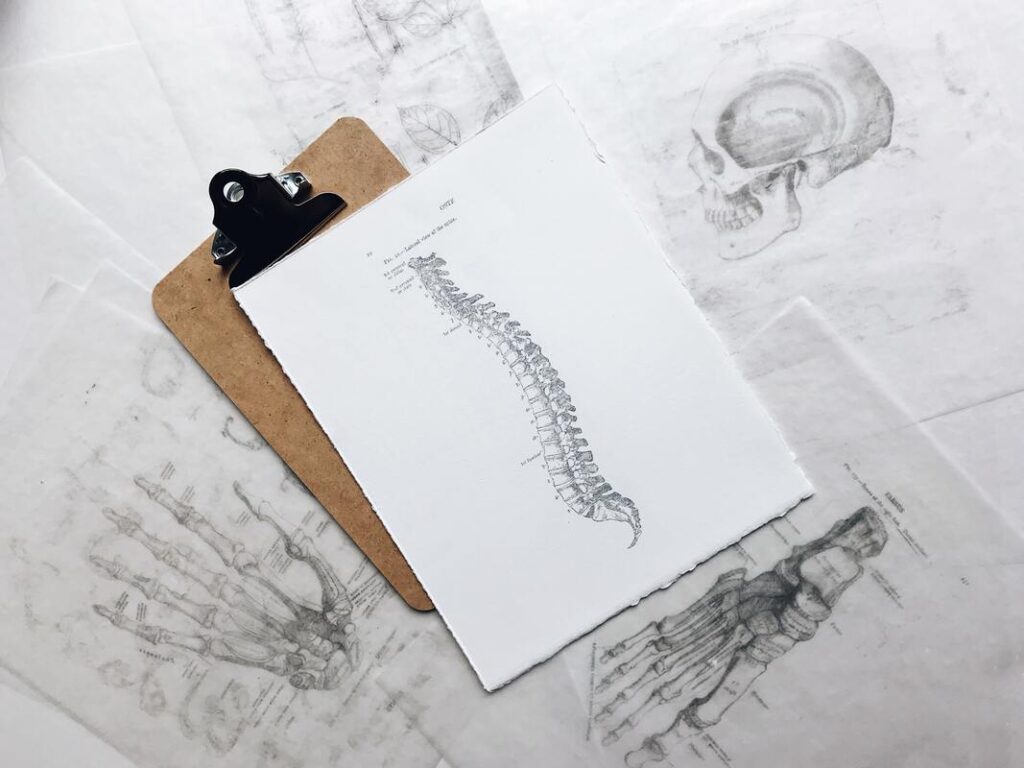Degenerative conditions are a common concern that affects millions of people worldwide. Age, genetics, and lifestyle habits contribute to the development of degenerative conditions, which can impair your ability to perform daily activities and lead to chronic pain. Chiropractic care offers a comprehensive approach to managing degenerative conditions by addressing the root cause of the problem. This post will discuss common degenerative conditions and how chiropractic care can help slow their progression. We will also delve into the benefits of chiropractic rehabilitation in improving joint health and reducing pain caused by arthritic conditions. If you’re looking for effective ways to manage degenerative conditions for yourself or a loved one, read on to learn more about how chiropractic care can help you achieve better results.
Thank you for reading this post, don't forget to subscribe!Understanding Common Degenerative Conditions
While chiropractors primarily specialize in treating conditions related to the spine, they can also provide relief and support for certain degenerative conditions. It’s important to note that chiropractic care may not be effective for all degenerative conditions, and individual results may vary. Here are some common degenerative conditions that may benefit from chiropractic care:

Osteoarthritis
This is a degenerative joint disease characterized by the breakdown of cartilage in the joints. Chiropractic adjustments can help improve joint mobility, reduce pain, and enhance the overall function of the affected joints. Chiropractors may also recommend exercises, stretches, and lifestyle modifications to manage osteoarthritis symptoms.
Degenerative Disc Disease
This condition involves the gradual deterioration of the intervertebral discs in the spine, leading to pain, stiffness, and reduced mobility. Chiropractic care can help alleviate symptoms by reducing pressure on the affected discs through spinal adjustments and traction techniques. Chiropractors may also recommend exercises, postural modifications, and other therapies to manage the condition.
Spinal Stenosis
Spinal stenosis refers to the narrowing of the spinal canal, which can pressure the spinal cord and nerves, causing back pain, weakness, and numbness. Chiropractic care may help relieve symptoms by utilizing spinal adjustments, decompression therapy, and exercises that promote proper spinal alignment and stability. However, the effectiveness of chiropractic care for spinal stenosis may vary depending on the severity of the condition.
Spondylosis
This term refers to the general degeneration of the spine, including the intervertebral discs, facet joints, and other spinal structures. Chiropractic care can help manage spondylosis by improving spinal alignment, reducing inflammation, and enhancing joint mobility through various manual techniques and rehabilitative exercises. Chiropractors may also provide guidance on posture, ergonomics, and lifestyle modifications to minimize the progression of spondylosis.
Rheumatoid Arthritis
Unlike osteoarthritis, a degenerative condition, rheumatoid arthritis is an autoimmune disease that causes chronic inflammation and joint damage. While chiropractic care cannot cure rheumatoid arthritis, it may help alleviate pain, improve joint function, and enhance overall well-being through gentle adjustments, mobilization techniques, and complementary therapies such as heat therapy or acupuncture.
The Role of Chiropractic Care in Managing Degenerative Conditions
Chiropractic care plays a role in managing degenerative conditions by focusing on the musculoskeletal system and its impact on overall health. While it’s important to note that chiropractic care cannot reverse or cure degenerative conditions, it can help manage symptoms, improve mobility, and enhance the quality of life for individuals affected by these conditions. Here are some key points regarding the role of chiropractic care in managing degenerative conditions:
Pain Management
Chiropractic care often relieves pain associated with degenerative conditions such as osteoarthritis, degenerative disc disease, or spinal stenosis. Chiropractors use manual adjustment techniques, mobilization, and other therapeutic modalities to address joint restrictions, reduce inflammation, and alleviate pain.
Improved Joint Function
Degenerative conditions can lead to joint stiffness, reduced range of motion, and restricted movement. Chiropractic adjustments aim to restore proper alignment and mobility to affected joints, improving joint function and reducing the impact of degeneration.
Posture and Spinal Alignment
Chiropractors emphasize the importance of proper posture and spinal alignment in managing degenerative conditions. They can advise on ergonomics, exercises, and lifestyle modifications to help individuals maintain good posture and reduce the stress on degenerated joints.
Preventing Further Degeneration
Chiropractic care focuses on optimizing spinal health and overall musculoskeletal function. Through regular adjustments and rehabilitative exercises, chiropractors aim to reduce stress on affected areas, potentially slowing down the progression of degenerative conditions and preventing further complications.
Complementary Therapy
Chiropractic care often complements other medical treatments for degenerative conditions. Chiropractors may collaborate with other healthcare providers, including primary care physicians, physical therapists, and orthopedic specialists, to develop a comprehensive treatment plan tailored to the individual’s needs.
Patient Education
Chiropractors educate patients about degenerative conditions, their management, and their self-care strategies. They can provide guidance on exercises, lifestyle modifications, nutrition, and ergonomic practices to support overall well-being and enhance the effectiveness of treatment for patient care.
The Benefits of Chiropractic Rehabilitation in Slowing Degenerative Conditions
Chiropractic rehabilitation offers numerous benefits in slowing down degenerative conditions, providing patients a holistic approach to their overall well-being. Chiropractors focus on restoring proper alignment and mobility to the spine and joints through targeted adjustments and exercises, thereby reducing the stress and strain on surrounding tissues. This can help alleviate pain, improve range of motion, and enhance overall function. Manual therapy is an important aspect of chiropractic rehabilitation that involves hands-on techniques to manipulate soft tissues and joints, helping to improve circulation, reduce inflammation, and promote healing.
By addressing the root causes of degeneration, chiropractic care promotes natural healing and tissue regeneration, potentially slowing down the progression of degenerative conditions such as arthritis or disc degeneration. Additionally, chiropractic rehabilitation often incorporates lifestyle modifications, such as exercise, nutrition, and stress management, which further contribute to the long-term management and prevention of degenerative conditions. Overall, chiropractic rehabilitation empowers individuals to take an active role in their health and promotes a higher quality of life.

Chiropractic Care for Degenerative Spine Conditions
Degenerative spine conditions, such as degenerative disc disease, spinal stenosis, or osteoarthritis, involve the gradual breakdown of the spine over time. These conditions are typically age-related and can cause symptoms like chronic pain, stiffness, and limited mobility.
Chiropractic care for degenerative spine conditions primarily revolves around spinal manipulation or adjustments. During these treatments, chiropractors apply controlled forces to the spine to improve spinal alignment, reduce pain, and enhance overall function.
While some patients with degenerative spine conditions may experience temporary pain relief or improved mobility following chiropractic adjustments, it’s important to note that chiropractic care cannot reverse the degenerative process itself. Degenerative conditions are often chronic and progressive, and chiropractic care typically focuses on managing symptoms rather than addressing the underlying cause.
It’s crucial to approach chiropractic care for degenerative spine conditions with caution. Before seeking chiropractic treatment, it’s advisable to consult with a healthcare professional, such as a primary care physician or a spine specialist. They can comprehensively evaluate your condition, recommend appropriate treatments, and advise on whether chiropractic care suits your specific situation.
Enhancing Joint Health: Chiropractic Strategies for Arthritis Management
Arthritis is a common condition affecting millions worldwide, causing pain, inflammation, and reduced joint function. While there is no cure for arthritis, chiropractic care can be valuable in managing its symptoms and enhancing joint health. Chiropractors are trained to evaluate and treat musculoskeletal conditions, including arthritis, using non-invasive techniques focusing on the body’s natural healing abilities.
One of the primary goals of chiropractic strategies for arthritis management is to reduce pain and inflammation. Chiropractors employ various manual adjustment techniques to restore proper joint alignment and mobility. By targeting specific areas affected by arthritis, chiropractic adjustments can help relieve pressure on the joints, reduce inflammation, and alleviate pain. These adjustments are gentle and tailored to the individual’s needs, ensuring a safe and effective treatment approach.
In addition to manual adjustments, chiropractors may recommend complementary therapies to enhance joint health in arthritis patients. These therapies can include therapeutic exercises, stretching routines, and physical therapy modalities. These approaches aim to improve joint flexibility, strengthen supporting muscles, and increase the range of motion. By implementing these strategies, chiropractors help patients manage arthritis symptoms, prevent further joint degeneration, and improve overall joint function.
Chiropractic care also emphasizes the importance of lifestyle modifications and self-care practices for arthritis management. Chiropractors provide guidance on ergonomic adjustments, such as proper posture and body mechanics, to minimize joint stress during daily activities. They may also offer nutrition advice and recommend dietary changes or supplements that promote joint health. Furthermore, chiropractors often educate patients on self-management techniques, including heat or cold therapy, relaxation exercises, and home stretching routines, empowering individuals to take an active role in their arthritis management.
Another significant aspect of chiropractic care for arthritis is its holistic approach. Chiropractors consider the entire body’s well-being, not just the affected joints. They assess the patient’s musculoskeletal health, including spine alignment, muscle imbalances, and nerve function. By addressing these underlying issues, chiropractors aim to optimize the body’s biomechanics and enhance its ability to cope with arthritis. This comprehensive approach to joint health and overall wellness sets chiropractic care apart as a valuable component of arthritis management.
Conclusion
In conclusion, chiropractic care is an effective approach to managing and slowing the progression of degenerative conditions. Whether you’re dealing with arthritis or a spine condition, chiropractic rehabilitation can help reduce inflammation, improve joint mobility, and enhance overall joint health. Chiropractic care can improve your quality of life by identifying the root cause of your degenerative condition and implementing a personalized treatment plan tailored to your specific needs. If you’re looking for a natural and holistic approach to managing degenerative conditions, contact Integrative Chiropractic today to schedule a consultation with our experienced chiropractors.


Recent Comments